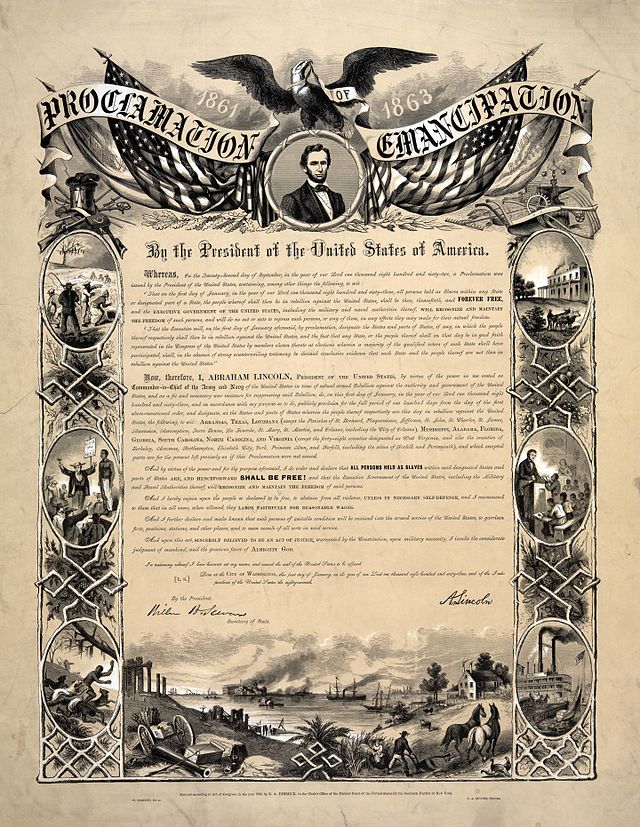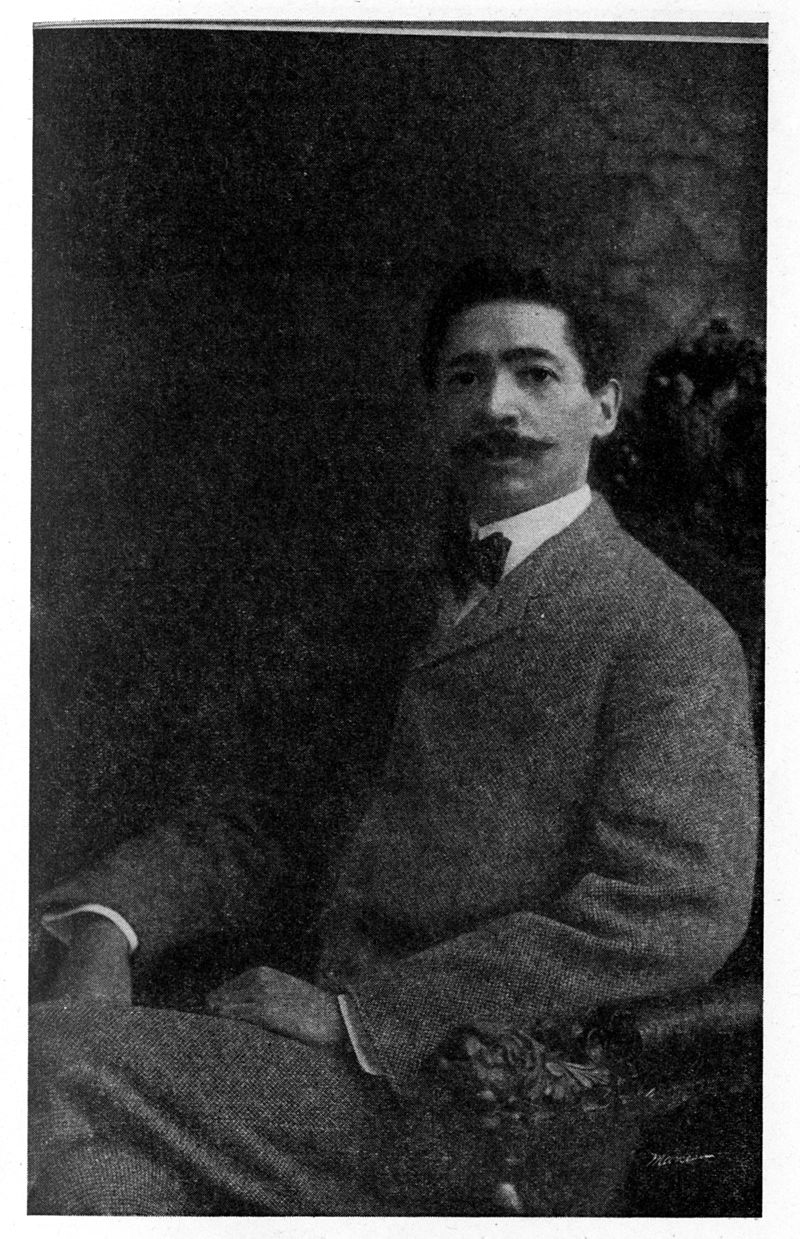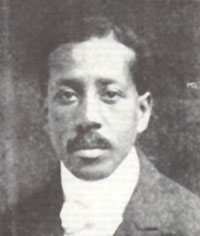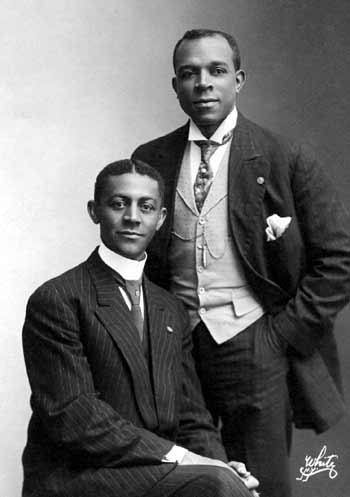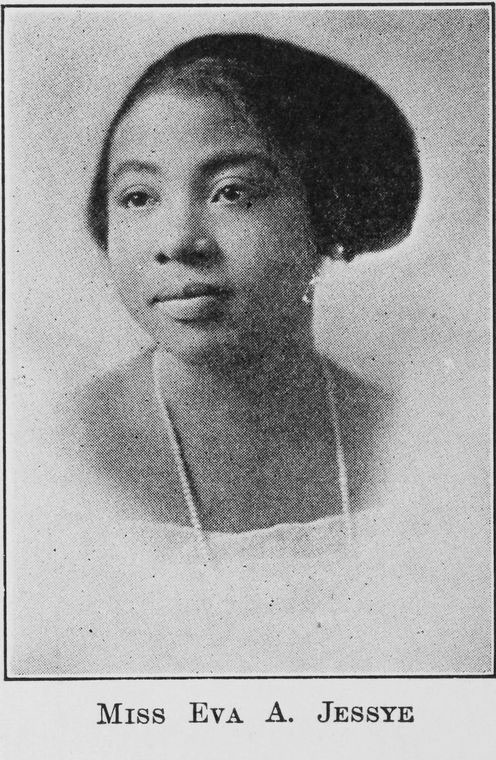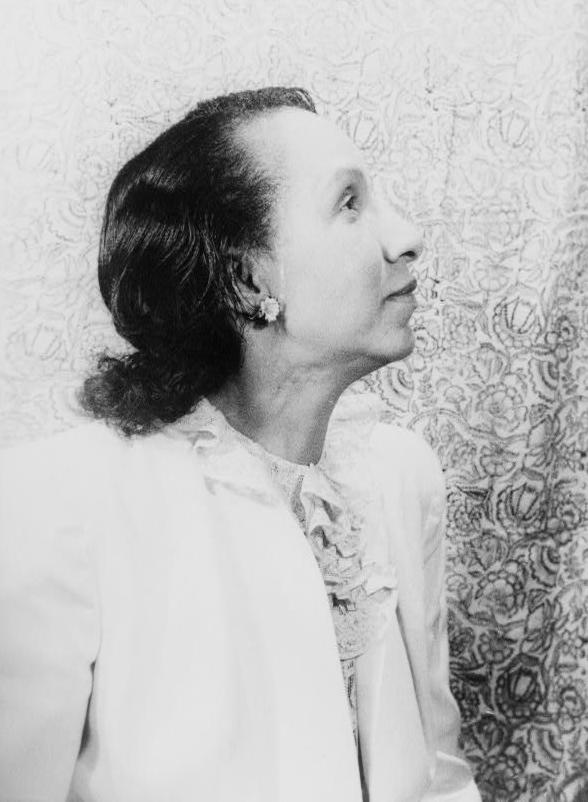
The Old Guard (1863-1900): Post-Emancipation
In the transition to the post-emancipation era, we encounter the Emancipation Proclamation, which was an order issued by U.S. President Abraham Lincoln on January 1, 1863, to free the slaves. It proclaimed the freedom of slaves in the ten states then in rebellion, applying to 3.1 million of the 4 million slaves in the United States at that time. The Proclamation immediately freed 50,000 slaves, with nearly all of the rest of the 3.1 million freed as Union armies advanced. The Proclamation did not compensate the owners, outlaw slavery, or grant ex-slaves, called "freedmen," citizenship.
It was not until the passing of the Thirteenth, Fourteenth, and Fifteenth Amendments to the Constitution that we find that all Black men were given the right to vote along with abolishing slavery and granting citizenship to all. From a musical perspective, the Emancipation Proclamation gave to the freed slave a bright hope in the future to pursue their academic dreams in the creative and musical arts.
The selective list below from Black Past shows another generation of composers who would "exert considerable influence upon concert life in Black America during the first half of the twentieth century" (Wright 2015, 143).
Select on any of the links below and hear a soundtrack specially chosen to enhance learning about any of the musicians listed while reading about their life and career. Let the music play in the background while reading the information-the websites for Clarence Cameron White, Shirley Graham, or Edward Boatner do not contain music:
| Harry T. Burleigh (1866-1949) |
Will Marion Cook (1869-1944) |
Harry L. Freeman (1870-1954) |
John Rosamond Johnson (1873-1954) |
|---|---|---|---|
|
|
|
|
|
| Learn More | Learn More | Learn More | Learn More |
| Clarence Cameron White (1880-1960) |
R. Nathaniel Dett (1882-1943) |
Francis Hall Johnson (1888-1970) |
Florence Price (1888-1953) |
|
|
|
|
|
| Learn More | Learn More | Learn More | Learn More |
| Eva Jessye (1895-1992) |
William Grant Still (1895-1978) |
Shirley Graham (1896-1977) |
Edward Boatner (1898-1981) |
|
|
|
|
|
| Learn More | Learn More | Learn More | Learn More |
| William Levi Dawson (1898-1990) |
John Wesley Work III (1901-1967) |
||
|
|
|
||
| Learn More | Learn More |
Each musician above went on to receive some form of university or conservatory training at the undergraduate level; others went on to obtain advance degrees and yet still a few went to Europe to be trained under prestigious faculty (Wright 2015, 144). From this list of musicians who were born during the post-Emancipation era, this lesson will explore the musical legacies of Harry T. Burleigh, William Grant Still, Florence Price, and R. Nathaniel Dett.






